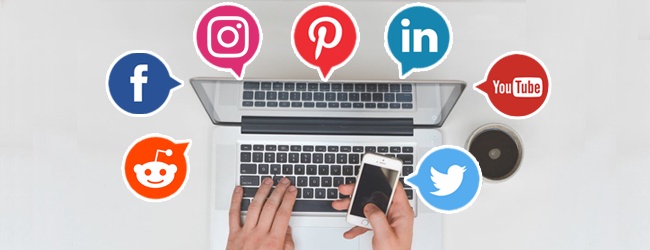Social media has become a part of everyday life for many of us. It is an important tool for staying connected with friends, family, and the world around us, but it can also be a double-edged sword. While it can be a great way to stay connected and informed, it can also be a source of frustration and danger. If your account is not properly secured, you could be exposing yourself to potential security threats.
This article will provide tips on how to protect your account on social media and ensure your information is kept safe.
Use Strong Passwords
Hackers may use your social media profile to gather information about you that will allow them to gain entry to your account and gain access. They could also gain entry by accessing friends and followers of yours who may provide further insight. This could result in phishing attacks, malware downloads or accessing confidential business data - leading to potentially disastrous results for both devices as well as business operations.
Use strong passwords when it comes to social media security, ideally longer than eight characters that incorporate uppercase letters, lowercase letters, punctuation marks and symbols. Furthermore, avoid using the same password across multiple sites - attackers could attempt credential stuffing to gain entry to other accounts using similar credentials if any one account gets compromised.
One essential tip for maintaining online security is never using information from social media to answer security questions or reset passwords. Doing this exposes yourself to hackers who could discover your birthday, pet name or family member name then use that knowledge to gain entry to your account and gain control.
Finally, it's also essential that both you and your employees avoid clicking suspicious links found in social media posts or emails that could lead to fake websites that appear authentic but contain malware. Two-factor authentication (2FA) can help safeguard against such incidents as it requires additional verification before providing access to an account.
Also Read How To Get Rid Of Viruses On Your Phone
Don’t Click on Links
Cybercriminals scouring social media feeds for personal information is like mining for gold for them. The more someone knows about you, the easier it will be for them to pose as you in a phishing attack and convince you to click a malicious link that exposes login credentials, credit card details or other sensitive details.
Most people assume they're sharing personal details for the benefit of their audience: for example, sharing photos of your children may bring distant relatives closer, while showing pictures from old stomping grounds can spark conversations with college buddies. But over-sharing online is dangerous: for example, hackers could use information posted publicly on vacation plans and physical locations as leverage against guessing security questions and breaking into your account this way.
At the same time, failing to delete an old social media account means it can remain accessible to hackers if it remains online for too long. That's why your business must pay careful attention when managing its accounts - particularly old or abandoned ones - leaving unattended or leaving unmanaged ones unattended can allow attackers to spam followers with fake posts that can damage brand equity and undermine credibility. In addition, for the most critical accounts it would be prudent to limit administrator rights so only you have access to critical data.
Avoid Public Wi-Fi
Social media has become an integral part of life; connecting us to friends and family, sharing experiences, and seeing the world in ways never possible before. But it also poses a security risk to both users and brands alike.
Hackers are taking advantage of your information posted to social media accounts to access and steal data from them. The more information hackers have about you, the more tailored their attacks may be: impersonating you can be used to steal money or share confidential business data as well as spread malware.
Hackers have many ways of accessing account details through data breaches and social media posts can easily be sold on the Dark Web by other criminals. You can protect yourself by always using a VPN; they encrypt all your data, meaning anyone snooping on your connection will only see garbled letters and numbers instead of your actual information.
Avoid public Wi-Fi whenever possible when accessing personal or financial data, particularly if it involves the transfer of files. If necessary, take precautions such as disabling file sharing and AirDrop on iOS, and printer sharing on PC to prevent hackers from gaining entry through these channels. Furthermore, check device settings and delete any rules which automatically forward emails, as this can give thieves another entryway into your account.
Check your account recovery information
Hackers may take advantage of your account recovery information to access other accounts on your behalf. To avoid this happening, avoid linking any social media accounts to third-party apps; these applications are vulnerable to attacks and if an attacker gains entry they could gain access to all your data easily.
Criminals armed with personal information about you will find it much simpler to launch a phishing attack against you. For instance, knowing your name and place of work allows them to pose as either a high-ranking executive in your company or even someone trusted like a supplier or solicitor and target you with their attack.
Cybercriminals may use social media platforms such as Facebook to identify potential targets and track their activity online, collecting enough information about each one to impersonate them, damage their reputation or obtain funds and sensitive data from them.
Watchman One suggests that social media identification entails creating a composite of an individual's identity and lifestyle from publicly available data, by monitoring public posts such as family member names or vacation dates.
To combat these threats, make sure that you regularly review your account recovery information and only share it with people whom you can trust. Also utilize strong passwords and two-factor authentication (2FA), when possible, for increased account protection.


No comments yet